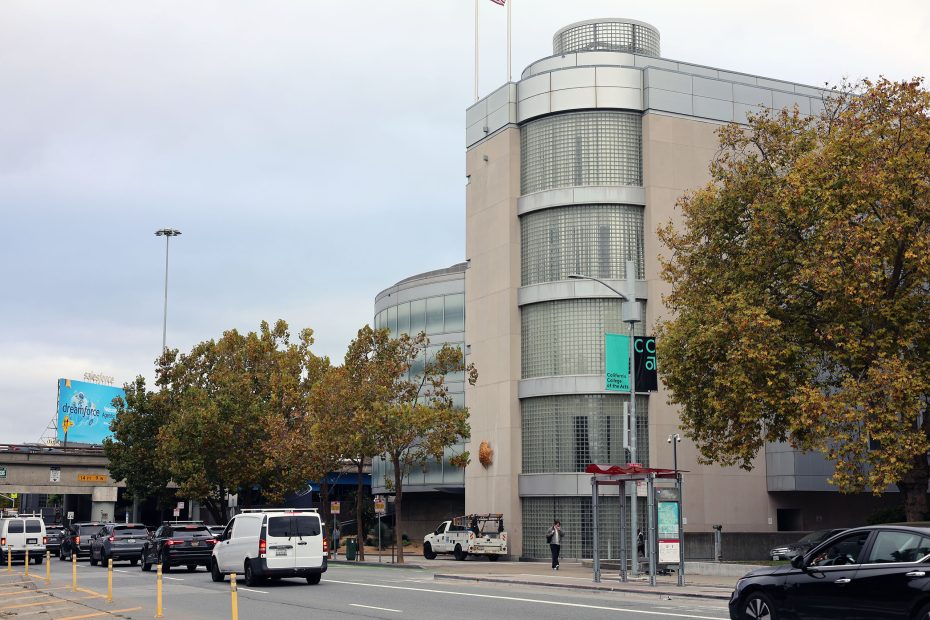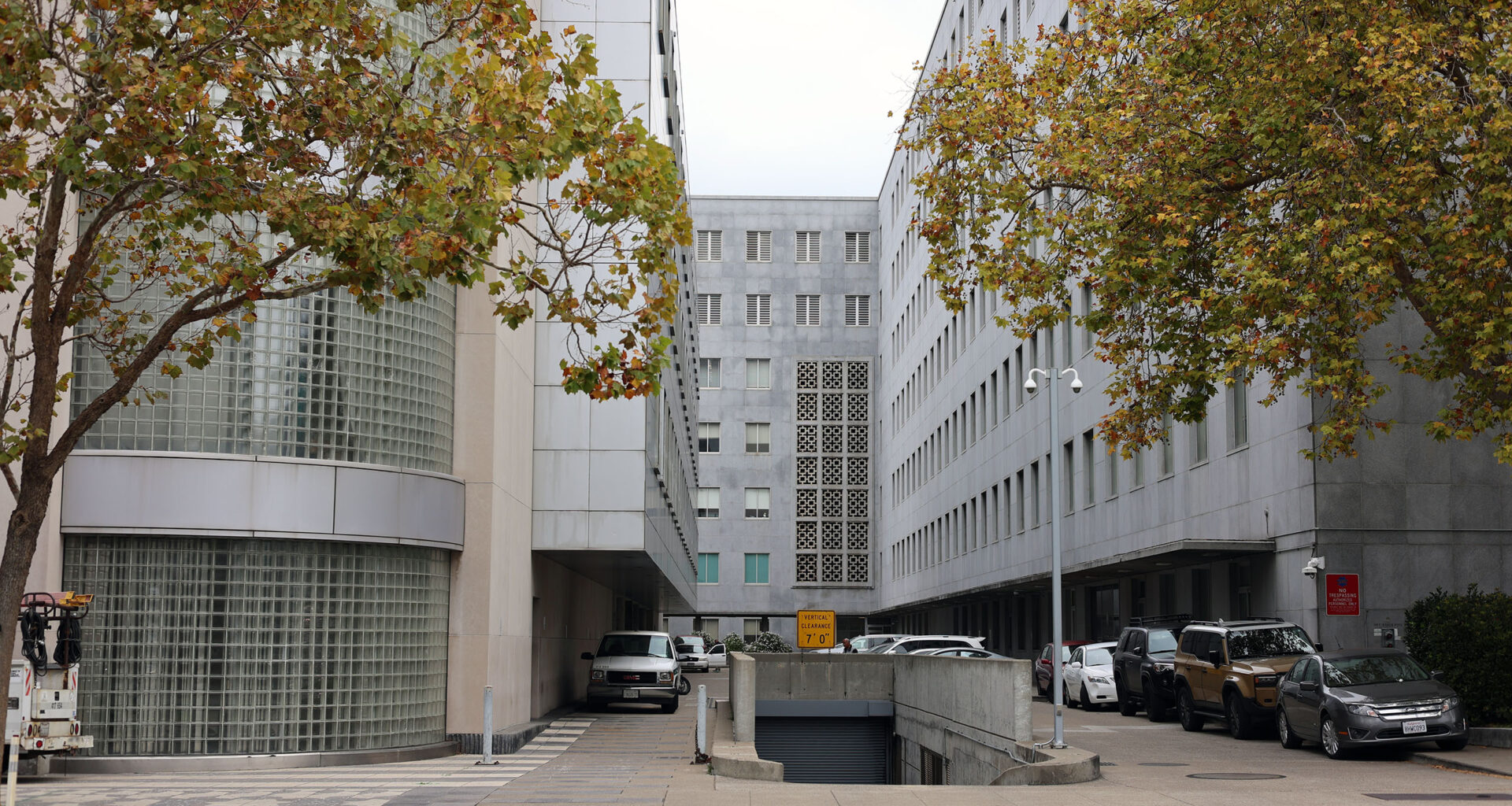Two city agencies are investigating an allegation made by an inmate in San Francisco jail that a sheriff’s deputy started a physical fight last Friday after telling the 27-year-old “you’re gonna be my bitch.”
The sheriff’s department said the deputy has been reassigned. “Upon learning of the alleged misconduct, Sheriff Miyamoto took immediate action to remove the deputy from inmate contact,” said Tara Moriarty, the sheriff’s spokesperson. “Excessive force will not be tolerated.”
The case is under investigation by the Sheriff’s Office and the Department of Police Accountability. The outcome of the investigation, Moriarty said, will determine next steps.
“Any violation — administrative or criminal — will have consequences,” Moriarty added. “Any abusive authority is a serious breach of public trust.”
On Oct. 17, Kayleb Hardee, who was sentenced to prison for manslaughter last month, “got into a mutual combat fight with deputized staff,” according to a written report by a deputy who responded to the fight. The report was obtained by Mission Local.
Hardee said in interviews that the fight involved Deputy Abraham Escobar. Hardee said he was in his cell requesting to use the phone when Escobar began cursing at him and threatening him, saying, “You’re gonna be someone’s bitch in prison, you’re gonna be my bitch here.”
Kishawn Norbert, who is incarcerated next door to Hardee, said he witnessed the incident. In an interview, Norbert said he heard Escobar say, “we’re going to handle this the old San Bruno way,” referring to reports of deputies fist-fighting inmates at the San Francisco County Jail complex in San Bruno.
Escobar, Hardee alleged, opened his cell and brought him to a multi-purpose room on the other side of the unit. Hardee, who is required to be handcuffed when he is not in his cell, said he was not restrained.
Inside the room, Hardee said, Escobar turned off his radio and then kneed him. Hardee said he defended himself, and Escobar called for backup. Multiple deputies came running and tackled Hardee to the ground while Escobar left, Hardee said. Another deputy, Hardee added, tased him and left him temporarily blind in one eye.
Hardee said he was not immediately provided with medical attention. Instead, he said, he was moved from room to room for several hours before being returned to his regular cell. He said he reported urinating blood and a potential broken rib.
In an Oct. 21 letter, Vince Vila with the Department of Police Accountability said that a complaint filed by Hardee’s mother the day before was under investigation. “The complainant alleges that her son was unnecessarily punched and tased by deputies,” Vila wrote.
The deputy’s incident report states that Hardee was held in a high-security part of the jail “where inmates must be restrained whenever they are outside their cells.” At around 3:45 p.m that Friday, a call sign for an inmate resisting was put out over the radio, the report states. Several deputies responded to a fight between Hardee and other deputies, it concludes.
Hardee was written up for two violations for “fighting” and “crime” in the same report that described his “mutual combat” with deputies.
Hardee said he had not been disciplined for either violation. Usually, inmates are punished within three days of a violation, people who work in the jail told Mission Local. They added that they had not seen the terminology “mutual combat fight” used in years.
 San Francisco county jail facilities at 425 7th St. on Oct. 22, 2025. Photo by Abigail Vân Neely.
San Francisco county jail facilities at 425 7th St. on Oct. 22, 2025. Photo by Abigail Vân Neely.
But allegations of jailhouse fights have a history in San Francisco. In 2015, the FBI looked into an alleged jail fight club, in which guards trained inmates and forced them to box one another while betting on the results. In 2019, then-Sheriff Vicki Hennessy launched an internal investigation into reports of officers beating inmates.
Hardee’s mother, Nicole Gorton, said she was denied a scheduled visit with her son the day after the alleged fight. When she saw him two days later, she said, he had a black eye, visible Taser marks, and a swollen wrist wrapped in a bandage.
Other jail staff told Mission Local they saw the same injuries on Hardee. A couple said they were surprised when they heard allegations that involved Deputy Escobar, whom they regarded as a “nice guy.”
On Monday, Gorton sent a letter to the sheriff’s office, District Attorney Brooke Jenkins, and Department of Police Accountability describing the incident and requesting a formal investigation.
“I believe there was an abuse of power and the use of excessive force by staff, which is both unethical and unlawful,” Gorton wrote. “Perhaps most troubling is that multiple inmates described these ‘off-camera fights’ as a common and accepted practice.”
Hardee has been incarcerated in San Francisco county jail since 2018. Hardee, jail staff, and his mother said he had taken every class and rehabilitative program available while awaiting sentencing.
After over seven years in San Francisco jail, Hardee said, he will be transferred to a state prison on Monday to complete the last five years of his sentence. After Friday’s incident, he said, he has been marked as a prisoner who has had an altercation with an officer.
Hardee said he spoke to a deputy supervisor today who apologized “on behalf of the sheriff’s department” and told him the incident “should have never happened.”
His mother also received a call from the sheriff’s office asking what they could do, Gorton said. She demanded medical attention. Only then, she said, was Hardee taken to a doctor for x-rays.
The supervisor said “bad apples make us look bad,” Hardee scoffed. To Hardee, “The whole situation looks bad.”
“We just get abused and abused and abused,” he said. “It gets swept under the rug.”

